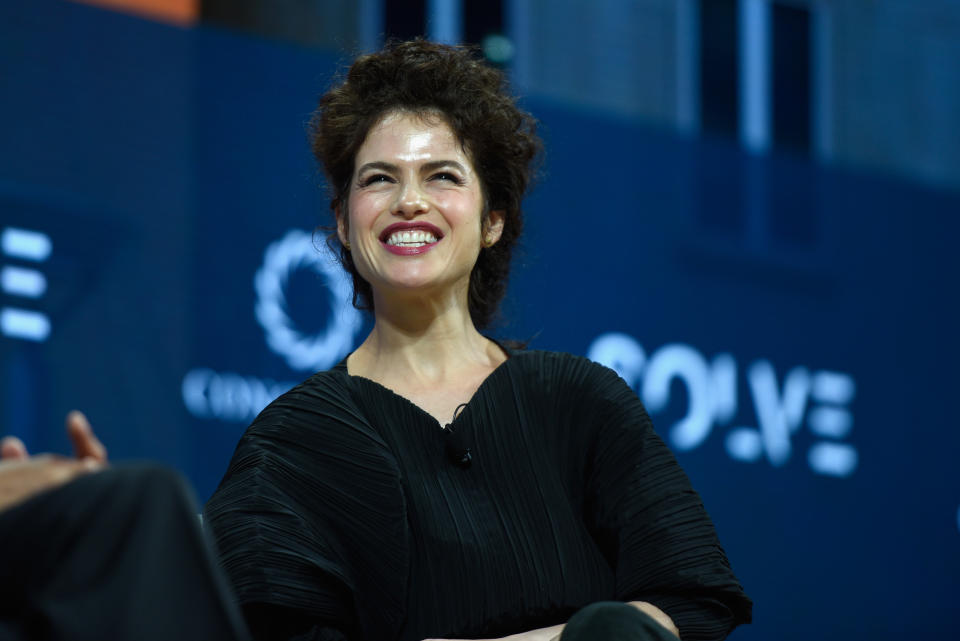Bill Ackman thanks Warren Buffett for Pershing Square's turnaround

Activist investor Bill Ackman, the billionaire CEO of hedge fund Pershing Square Capital, is making a huge comeback — and he credits it to an insight he gleaned from years of studying his “mentor” Warren Buffett.
After several years of underperformance, Pershing Square is up more than 40% year-to-date. Yet Ackman isn't actively raising capital, even after four years of the fund’s consecutive negative returns and significant investor redemptions.
He may have the Oracle of Omaha to thank. Speaking at the 13-D Active-Passive Investor Summit this week in New York, Ackman said "one of the most instructive things" from his career has been reading the legendary investor’s letters from the Buffett Partnership, the fund he ran before Berkshire Hathaway (BRK-A, BRK-B), and became a world-class authority on making money.
In May 1969, after several years of outperformance, Buffett told his investors that he would close the partnership, pointing to an investing environment that had become "more negative and frustrating."
In the letter, he offered the partners the option to take their cash out, or keep their investment for shares in the textile company Berkshire Hathaway.
"A bunch of people wanted cash and spent another 50 years seeing their therapists for one of the dumber decisions that they made," Ackman said this week.
He added that it was "a pretty interesting decision" for Buffett to transition from managing a hedge fund to running a publicly-traded company.
"And he's done quite well, obviously. Since 1969, Berkshire is one of the greatest investments of all time," Ackman said.
"I think it's instructive. And, I think what Mr. Buffett realized in 1969 is that being a longterm investor with short-dated capital is just ultimately going to lead to a bad outcome at some point in time,” the hedge fund manager said.
‘Rough patch’
Ackman explained that like Buffett, the mission at Pershing Square is to have a permanent capital structure. He said they took a step at that direction, launching a publicly-traded fund in 2014 with the long-term plan to have a majority of capital in that vehicle.
He attributed a string of poor performance at Pershing Square to a couple of bad investments. Those mistakes that led to significant investor redemptions, or what Ackman calls a "rough patch."
Pershing Square Holdings, the public vehicle, is now 80% of the firm's capital.
He said that “part of the reason we made that mistake is when you start as a hedge fund manager you start as an investor, particularly if you're an activist investor. When you get to $20 billion in assets, you become the CEO of an assessment management business, something I never really aspired to be.”
At that size, investors will "appropriately" take a piece of your time.
"Because Mr. Smith who gave you $250 million wants to say, 'Hello,” Ackman said.
“Those little breaks over the course of the day really interfere with your ability to dig in, read a 10K, etcetera,” he added. “We just made the decision we are going to stop marketing. We are certainly going to answer those calls and keep our investors informed."
He said he's returned to a strategy that had been successful, investing in simple, predictable, cashflow positive companies.
Some of Pershing Square’s stock investments include Restaurant Brands International (QSR), Lowe's (LOW), Chipotle (CMG), Starbucks (SBUX), United Technologies (UTX), ADP (ADP), Howard Hughes Companies (HHC), to name a few.
"I guess the way to think about it is — it's very hard to lose money by buying great businesses if you pay a fair price," Ackman said. "For a while there, we forgot that our main job was to make money, so we woke up, and now we're back in the money making business."

Perhaps another reason for Ackman's recent success, which also goes back to a Buffett lesson, is choosing the right person to marry.
"Maybe that has something to do with being in love, getting married. If your manager is getting married, having a child, I highly recommend you add capital with them," Ackman said.
Ackman, 52, married MIT professor Dr. Neri Oxman in January. The couple expects their first child at the end of April.
Julia La Roche is a finance reporter at Yahoo Finance. Follow her on Twitter.

